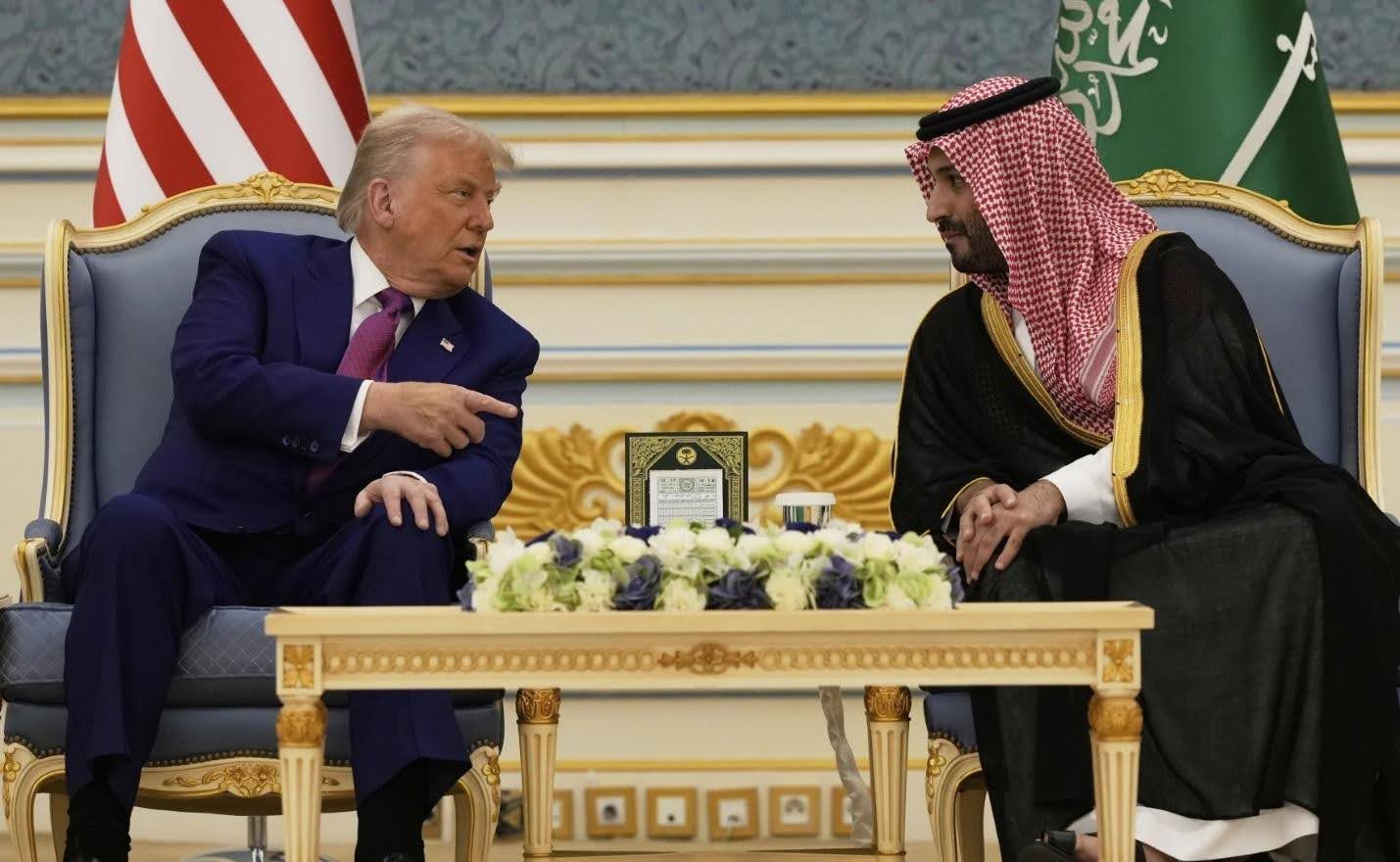Saudi Arabia Pledges $600B Investment—Crypto Sector Set to Benefit from AI & Infrastructure Surge

Key Takeaways:
- Saudi Arabia commits to $600 billion in U.S. investments, with $20 billion going into AI and data centers.
- Global tech giants including Google, Oracle, and AMD plan to deploy $80 billion into emerging technologies across both countries.
- Crypto and blockchain industries are poised to gain from the infrastructure boom and AI-driven expansion.
According to the fact sheet released today from the White House, the historic investment commitment between Saudi Arabia and the United States is making waves across multiple sectors, including cryptocurrency. While the spotlight falls on traditional infrastructure and defense, blockchain and crypto-related technologies are quietly positioned to ride the wave of AI, data infrastructure, and digital transformation funded by this deal.

Crypto at the Crossroads of AI and Infrastructure
As Saudi Arabia’s DataVolt moves forward with its $20 billion U.S. investment in AI data centers and energy infrastructure, crypto analysts are closely watching the implications. AI and blockchain integration is already a growing trend—seen in decentralized AI protocols like Fetch.ai and SingularityNET—so this capital injection could lead to exponential development in edge computing, real-time data processing, and blockchain-based data verification.
DataVolt’s investments signal two things:
- A major increase in high-performance computing capacity, a critical enabler for proof-of-work (PoW) and hybrid consensus blockchains.
- Renewable energy infrastructure growth might support crypto mining activities in more sustainable ways—especially in U.S. areas like Texas, where mining rules and power incentives have drawn large participants.
The interaction between blockchain systems and artificial intelligence research is changing quickly. Projects like Ocean Protocol and Render Network—which tokenize AI services and GPU compute resources—could benefit from the increased capacity and capital flow generated by DataVolt and its U.S.-based facilities.
Tech Giants Pour $80B into Emerging Technologies
Another eye-popping figure is the $80 billion co-investment by companies like Google, Oracle, Salesforce, AMD, and Uber. While most associate these brands with Web2 infrastructure, several are making strategic moves into blockchain and digital assets:
- Google Cloud has already partnered with multiple blockchain networks including Solana, Tezos, and Aptos to support node hosting and real-time analytics for Web3 developers.
- Used by companies for safe supply chain management and smart contract automation, Oracle keeps growing its blockchain-as-a-service offering.
- Salesforce launched NFT Cloud, a system enabling companies to create and control non-fungible tokens.
- AMD directly affects crypto hardware availability and performance by providing chips for mining and blockchain processing as well as GPUs.
This $80 billion in technology investment will likely strengthen the infrastructure layer supporting crypto adoption and developer tooling. With these corporations increasingly interacting with decentralized protocols, the border between Web2 and Web3 continues to blur.

Strategic Alignment with Crypto-Heavy Regions
Gulf States Already Supportive of Crypto
Saudi Arabia’s pivot toward advanced technology investment mirrors broader regional support for blockchain. The United Arab Emirates (UAE), for instance, has already positioned itself as a global crypto hub with pro-blockchain regulations, free zones for Web3 startups, and a digital dirham under development.
Saudi Arabia itself is a participant in Project Aber, a joint central bank digital currency (CBDC) initiative with the UAE. The project successfully demonstrated cross-border payments using distributed ledger technology, suggesting that crypto rails are not only under consideration—they’re in active development.
With its new $600 billion commitment, Riyadh is doubling down on digital transformation. While much of the current focus remains on AI and infrastructure, the strategic overlap with blockchain cannot be ignored.
A Pathway for Tokenization and Real-World Asset Integration
Real assets—energy, transportation, aerospace, and healthcare—are the focus of much of the investment package. At the forefront of tokenization trends, these industries are where real-world assets (RWAs) like real estate, commodities, and even carbon credits are being represented as digital tokens on-chain.
Read More: SEC Unites Wall Street Heavyweights for Pivotal Tokenization Summit
Blockchain-backed logistics and supply chain systems could all be seen in GE Vernova’s energy solutions of $14.2 billion and U.S. enterprises’ infrastructure services of $2 billion. Tokenization platforms such as Chainlink, Centrifuge, and RealT could find new institutional interest as more capital enters these traditionally non-digital sectors.
Defense Tech, Edge Security, and Blockchain
Though the $142 billion defense contract is mostly about conventional military hardware and services, information technology and cybersecurity are quite important. Modern defense operations increasingly depend on secure communications, encrypted data exchange, and real-time coordination—all areas where blockchain can improve resilience and transparency.
In the past, American defense companies looked at blockchain-based systems for safe digital identity and supply chain traceability. With such a massive influx of capital and emphasis on modernization, it is likely these technologies will be scaled or piloted further.
Ripple Effects for U.S.-Based Crypto Startups
Saudi Arabia’s $600 billion injection into the American economy doesn’t just benefit Fortune 500 firms. It creates downstream liquidity, venture interest, and potential partnerships for crypto startups based in the U.S.
The presence of sector-specific funds—such as the $5 billion Energy Investment Fund and the $5 billion Aerospace and Defense Fund—could intersect with crypto projects working on:
- Decentralized energy marketplaces
- Blockchain-based aircraft maintenance logs
- Smart contract-based logistics and procurement tools
Read More: SOL Strategies Launches $500M Tokenized Note to Increase Solana Staking Yields
Final Note
While the headlines highlight energy, defense, and infrastructure, the crypto industry stands to gain significantly from the underlying technological transformation fueled by this record-breaking investment. The convergence of AI, cloud infrastructure, and Web3 services is accelerating—and Saudi Arabia’s $600 billion commitment just put more fuel in the tank.
The post Saudi Arabia Pledges $600B Investment—Crypto Sector Set to Benefit from AI & Infrastructure Surge appeared first on CryptoNinjas.
